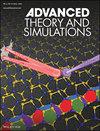人工神经网络在具有生物对流和非线性热辐射的Riga板上切线双曲纳米流体流动中的应用
IF 2.9
4区 工程技术
Q1 MULTIDISCIPLINARY SCIENCES
引用次数: 0
摘要
在多孔介质中Riga板上存在生物对流和非线性热辐射的切线双曲纳米流体的研究解决了在先进工程系统中加强传热和流体动力学的关键挑战。本研究通过应用人工神经网络(ann)来模拟在这些条件下表现出非牛顿特性的正切双曲纳米流体的复杂行为,填补了一个重要的空白。通过引入适当的相似变换,将偏微分形式的控制方程简化为常微分方程。然后使用四阶Runge - Kutta方法对这些结果方程进行数值积分。这种创新的方法在处理高度非线性系统时提供了精度和计算效率。这些发现在现实世界中有着广泛的应用,特别是在传热技术的优化方面,如热管理系统、生物微流体装置和提高多孔介质的采收率。人工神经网络与经典数值技术的集成为解决复杂环境中的流体流动问题提供了一个强大的框架,为改善能源系统和工业过程提供了新的途径,其中精确的热控制至关重要。本文章由计算机程序翻译,如有差异,请以英文原文为准。
Application of Artificial Neural Networks in Tangent Hyperbolic Nanofluid Flow Over a Riga Plate with Bioconvection and Nonlinear Thermal Radiation
The study of tangent hyperbolic nanofluids in the presence of bioconvection and nonlinear thermal radiation over Riga plates within porous media addresses critical challenges in enhancing heat transfer and fluid dynamics in advanced engineering systems. This research fills a significant gap by applying artificial neural networks (ANNs) to model the complex behavior of tangent hyperbolic nanofluids, which exhibit non‐Newtonian characteristics, under these conditions. By introducing appropriate similarity transformations, the governing equations in partial differential form are reduced to ordinary differential equations. These resulting equations are then integrated numerically using the Runge‐Kutta method of order four. This innovative approach offers both precision and computational efficiency in addressing highly nonlinear systems. The findings have substantial real‐world applications, particularly in the optimization of heat transfer technologies, such as thermal management systems, bio‐microfluidic devices, and enhanced oil recovery in porous media. The integration of ANNs with classical numerical techniques provides a robust framework for solving fluid flow problems in complex environments, offering new avenues for improving energy systems and industrial processes where precise thermal control is crucial.
求助全文
通过发布文献求助,成功后即可免费获取论文全文。
去求助
来源期刊

Advanced Theory and Simulations
Multidisciplinary-Multidisciplinary
CiteScore
5.50
自引率
3.00%
发文量
221
期刊介绍:
Advanced Theory and Simulations is an interdisciplinary, international, English-language journal that publishes high-quality scientific results focusing on the development and application of theoretical methods, modeling and simulation approaches in all natural science and medicine areas, including:
materials, chemistry, condensed matter physics
engineering, energy
life science, biology, medicine
atmospheric/environmental science, climate science
planetary science, astronomy, cosmology
method development, numerical methods, statistics
 求助内容:
求助内容: 应助结果提醒方式:
应助结果提醒方式:


